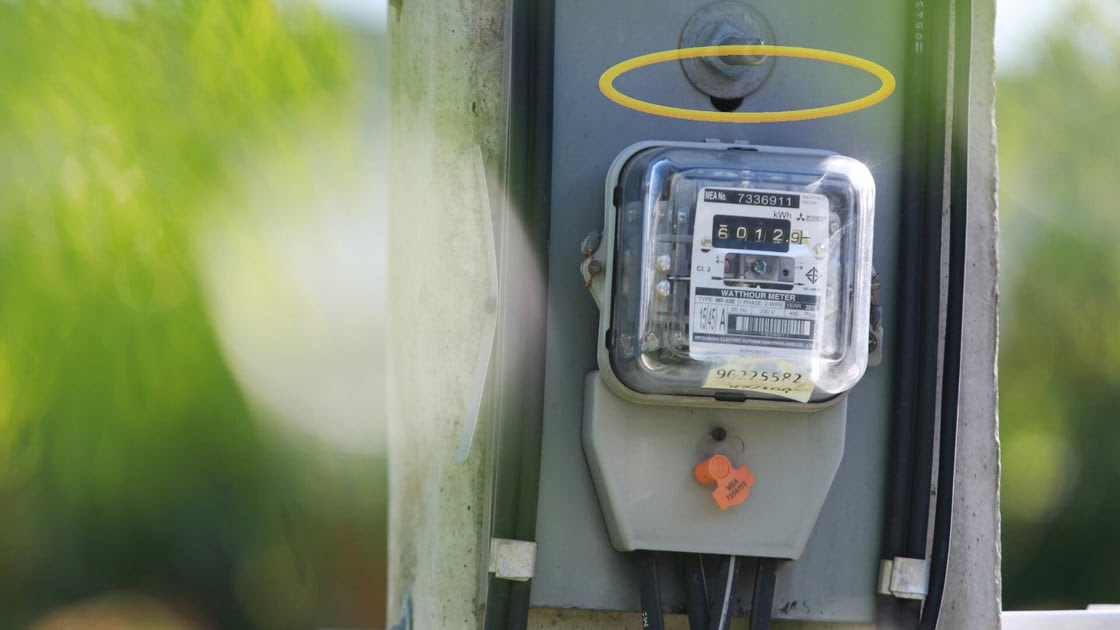For more on smart metering, and to hear more from Neil Bosworth, check out the RCR Wireless webinar on smart metering (October 19; available on-demand).
The urgency to address environmental concerns plays a crucial role in the development and adoption of smart meters. Approximately 30 percent of greenhouse gas emissions result from the production of heat and electricity using fossil fuels. Additionally, transportation contributes an additional 15 percent of emissions, mainly from vehicles. As society increasingly transitions toward electric power, it is imperative that the electricity itself is generated from renewable sources rather than fossil fuels. This drive towards renewable power generation provides added impetus for the implementation of smart meters.
Aligned with various green agendas and targets, smart meters are an essential component of a broader smart grid, addressing our heavy reliance on fossil fuels and infrastructure challenges to meet growing energy demands. By integrating smart meters into advanced metering infrastructure (AMI), utilities can gather measurements of various electricity parameters beyond just consumption for billing purposes. These meters have the capability to monitor the quality of the electricity supply, including voltage and harmonics, across millions of endpoints at the point of use.

Data collected by smart meters is transmitted to the utility’s head end system, which subsequently forwards it to grid managers. This wealth of information allows utilities to identify and address inefficiencies within the grid, enabling real-time balancing of supply and demand. Through dynamic tuning, the grid can optimise its operations, resulting in significant cost and energy savings. The integration of renewable energy sources such as wind or solar power complements this approach. A comprehensive understanding of energy demand and distribution empowers utilities to efficiently utilise fossil-based supplies when necessary, such as during cloudy or calm weather conditions.
However, the benefits of smart meters extend beyond utility companies. Consumers also stand to gain valuable insights into their energy consumption patterns. Smart meters offer real-time feedback and detailed information about energy usage, enabling consumers to identify which appliances contribute the most to their energy bills. By making informed decisions, such as tuning down the thermostat by a degree or adjusting usage patterns, individuals can reduce energy wastage, cut emissions, and actively contribute to sustainability efforts.
Innovative technologies further enhance the consumer experience. Online applications and in-home displays provide users with a comprehensive view of their energy budget, facilitating better control and management of their energy consumption. These tools empower consumers to actively participate in the journey toward a more sustainable future.
The deployment of smart meters signifies a significant shift in our approach to energy management. With their ability to measure multiple parameters, optimise grid operations, and provide actionable insights to consumers, smart meters represent a prudent investment for utilities and governments. The cost and energy savings resulting from these advancements make smart meters an attractive proposition for all stakeholders.
But smart meters – and, importantly, the technologies and services they enable – are also advancing. In the realm of utility services, certain principles are constant: the need for efficient billing processes, streamlined delivery across networks, and effective supply and demand management. These principles form the bedrock of utility operations. However, when it comes to electricity, the latest generation of smart meters introduces a new dimension by harnessing the power of applications and unlocking a host of innovative features.
Electricity consumption has witnessed a transformation with the rise of prosumers, individuals who generate their own electricity through solar panels, wind turbines, or storage systems, including electric vehicle (EV) batteries. This shift necessitates adaptability and flexibility in managing the grid. Smart electricity meters rise to the occasion, accommodating distributed energy resources. Notably, meter solution providers are offering a range of applications that can be run on these meters, akin to smartphone apps, revolutionising the customer experience.
One intriguing aspect of demand side management is the utility’s ability to remotely control appliances within households or buildings. Perhaps the utility can limit excessive gaming sessions on our children’s games consoles? No. Demand side management can remotely limit power to high-consuming appliances like heat pumps or EV chargers during periods of peak demand. This approach, of course, requires alignment with consumer preferences and agreements. By optimising consumption patterns, utilities can effectively balance the grid, enhance system stability, and ensure efficient resource allocation.
While the notion of feeding water or gas back into the grid might seem less common, the future holds intriguing possibilities. Perhaps we may witness the emergence of distributed green hydrogen generation plants that convert rainwater into hydrogen using solar panels. In managing water and gas supplies, it is not solely a matter of issuing bills based on consumption. Leakage and pressure losses are prevalent concerns that demand efficient supply management. Smart meters play a pivotal role in delivering these new insights and control mechanisms.
With their ability to measure multiple parameters and provide real-time data, smart meters enable utilities to enhance operational efficiency and customer satisfaction. By leveraging these meters, utilities can optimise their resource allocation, reduce waste, and proactively address challenges related to energy consumption, distribution, and grid stability.
The integration of smart meters represents a paradigm shift, marking a departure from traditional metering practices. They foster a symbiotic relationship between environmental sustainability, grid efficiency, and consumer empowerment. They allow utilities to embrace innovation and deliver value-added services to customers. As the utility landscape evolves, the insights and capabilities unlocked by smart metering will shape a more efficient, responsive, and sustainable energy ecosystem.
In this era of digital transformation, smart meters are a key enabler, propelling the industry toward a future defined by greater efficiency, flexibility, and customer-centricity. As utilities embrace these transformative technologies, they lay the foundation for a smarter and more resilient energy landscape.
For more on smart metering, and to hear more from Neil Bosworth, check out the RCR Wireless webinar on smart metering (October 19; available on-demand).
Neil Bosworth devises and implements the IoT vertical marketing strategy across the Telit Cinterion portfolio. As an active member of European Smart Meter Interest Group, Neil’s focus is primarily towards Smart Energy and Smart Metering. Before pursuing commercial career in IoT Neil worked as an electronic design and applications engineer.

